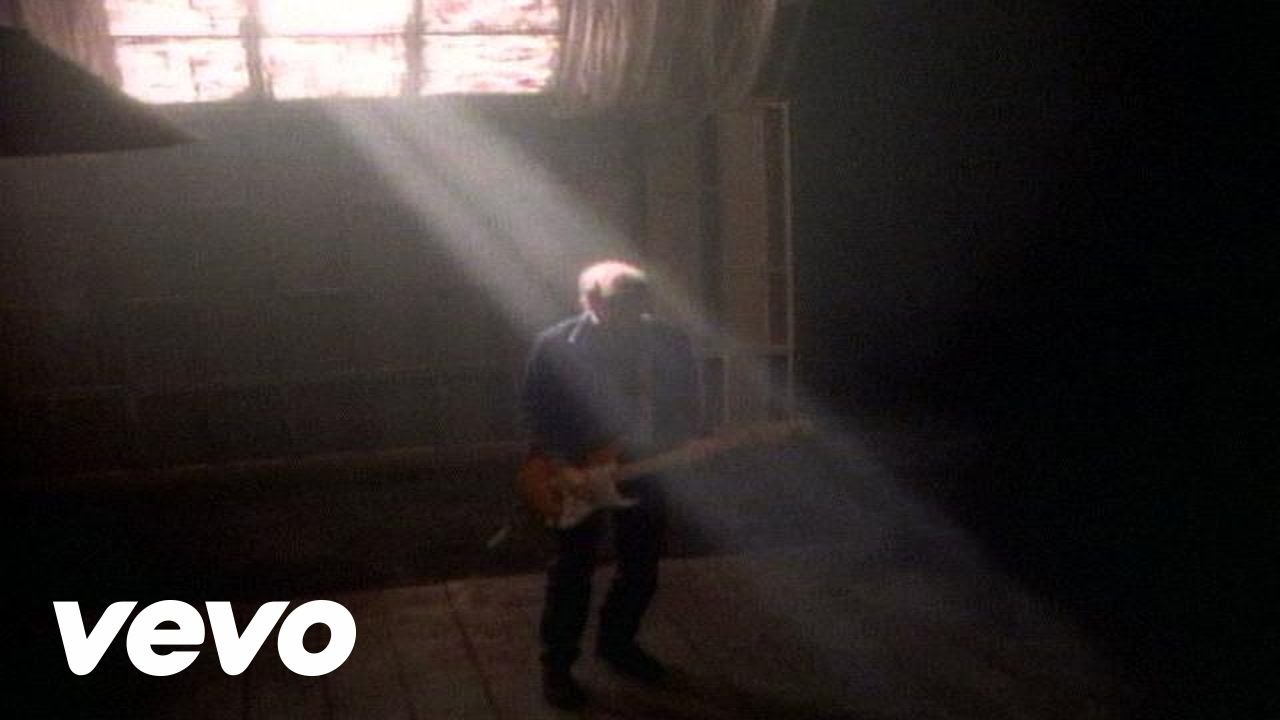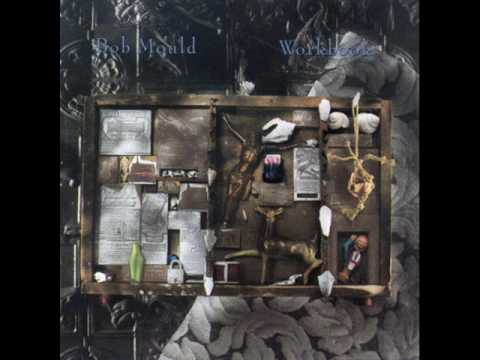"Yeah, there’s a lot to do in Emeryville, there’s IKEA…"
"Kidding," he grins, and I breathe a sigh of relief. I’d hoped not to scoop a headline about an alternative rock star’s love for Swedish furniture.
Catching up with Bob Mould has proved elusive as his schedule is fairly hectic. We end up speaking on Pacific Time in rainy northern California, where I’m holed up in a dull commuter town east of San Francisco.
We’re here to talk about Workbook, the pivotal transitional album between Hüsker Dü and Sugar getting a 2014 facelift as Workbook 25.
Bob is in good form. He’s very busy and currently "doing real good"; beginning with the local Noise Pop Festival on February 25, where he’ll be playing most of Workbook alongside "sympathetic" acoustic-driven songs from the rest of his back catalogue.
Reflecting back to the summer of 1988, Mould ponders how, "coming out of Hüsker with a record like Workbook, it really helped me turn the corner I think, and get on my own road."
He goes on: "I talk about it in the book [his See A Little Light autobiography, published in 2011], going back to 1987, the last Hüskers record and the slow dissolve of that band. I was getting really disillusioned where everyone was heading; not feeling good about the place I was living in in Minneapolis, so I started looking at getting out of town, and moving up to a farm."
"My then-partner was a farm kid too, and we got out there in the December of ’87 just as Hüskers were unraveling for good…" He trails off.
"There’s a lot of things on that record which are a reflection of me sitting with my thoughts, coming out of eight years with that band. It’s a very introspective record looking at that wreckage and trying to move forward with my own ideas."
Somehow in the midst of this stress, he managed to create a set of classic influential songs, with a more Celtic folk sound than anything he’d done previously.
Out there close to the elements, his listening habits (Richard Thompson) and the home studio he created combined to help him produce a record with a strong acoustic core. Tracks such as ‘Poison Years’ reflect an artist coping with his past, and push towards a new sound. It’s the sound of someone dealing with his history and fighting to produce something new.
The first track is ‘Sunspots’, which Mould thinks sounds more like the shimmer of the Northern Lights in a starry sky; a finger picked acoustic number which would sit comfortably on the latest album by RM Hubbert or Steve Gunn. It’s a defining opener, putting Hüsker Dü behind him and clearing expectations for the record to come.
The track ‘Wishing Well’ then sets expectation; as the city life and his past are left behind as "homes and trains and the greens of plains" hove into view.
‘See A Little Light’ is the core track for this album. An optimistic Bob Mould song, riffing out, the noise of Hüsker Dü and jangling on a theme that is, as he puts it, "not rocket science". ‘Poison Years’ follows and reflects on his past, and when I ask him about this, Mould is at pains to point out that "this is not a finger pointing exercise", more an examination of his life before, amped up by the angst-fuelled biblical images found in ‘Sinners And Their Repentances’.
In Workbook 25 we find the light and power of ‘Brasilia Crossed With Trenton’, a track based on a dream he had in the shower which heads off into the middle of nowhere, where your "imagination runs away for a while", and creates an open space for the listener to appreciate the scale of the chords as they crash in.
He’s worked with Jim Wilson to enhance the album, with the vinyl pressing spacing out the tracks over four sides. He’s known Wilson since 1993, with the recording engineer having played bass in Mould’s live band in 1998. "Now Jim does mastering and he does a great job," says Mould. "He really brought Workbook back to life. It is much better sonically, and it’s a little deeper and wider sounding. The test pressing sounded great."
They’ve also added a live concert to the package, recorded in the Cabaret Metro club in Chicago, one of Mould’s favourite venues in the US.
As we talk more about the songs on the album he points out that while his creative life was peaking, his love life was not working out, and that the optimism captured in this album would have a corollary in the Black Sheets Of Rain album which followed. "In ’88, when I was working on Workbook, I was in my first long term relationship and that was dissolving in ’89. I packed up and moved to New York City and into another relationship. So that when Workbook eventually came out, my career was looking good and my personal life was looking shit."
He was the isolated man in ‘Lonely Afternoon’, left with the silence in the farmhouse as his partner began to live a city life again. Looking after the chickens, sleeping in the afternoon, finding solace in the short Minnesota summer, and then being psychologically pulled apart by the brutality of the winter. With its elemental imagery of the wind whipping through the barn, dead animals on the roads, the sound of Amish buggies in the distance and the bleakness of the winter landscape, this is not the idyllic farm life.
The album ends with the powerful ‘Whichever Way The Wind Blows’. This growls into life reflecting Neil Young and Crazy Horse, with an odd modulation and heavy discord. Mould talks about this influence and how critical the opening and closing tracks of this album are, referring to "this wild song" as the full stop at the bottom of a short, tight album. "I’ve always thought that the opener and the closer on an album is the key. You try to set the stage when you open the record, and I always think of it like a play and you’ll create a motif that people will hear strains of it throughout."
"Then your epilogue, your closer, is the period on the sentence, then roll credits." He chuckles: "That bluesy riff and that weird drop tuning; whether it’s Crazy Horse or Fairport Convention, when you hear that riff come in your really know that this is not going to be an up number."
Although continuing to work in the style of his most recent album, 2012’s Silver Age, Mould reflected a little on his age when he revisited Workbook. "Well, I look at himself in the mirror, the numbers on my driving license, and wonder how many years of Beaster I have left in me."
"I’m a realist. I don’t think 10 years from now I’m necessarily going to be tearing up the stage quite like that. As time goes on the acoustic guitar is going to be a closer friend."
We then chat briefly about his hearing problems and he makes light of issues that have left him with a constant and permanent buzzing in his head. He mentions that he’s had some "ahem, interesting developments in the 150 decibel range, which were disconcerting", but the high whistling he’s learned to deal with…
As I’m in California he gives me some Workbook-style tourist tips. I’ll head to the rain-swept ocean beach via Sausalito and the N-Judah line to the middle of nowhere. This is what he enjoys and this is what "erases all the noise in his head". Half awake on the jetlagged journey home, the refrain from ‘Dreaming, I Am’ soothes me as America passes below.
Workbook 25 is out on February 25 via Omnivore





